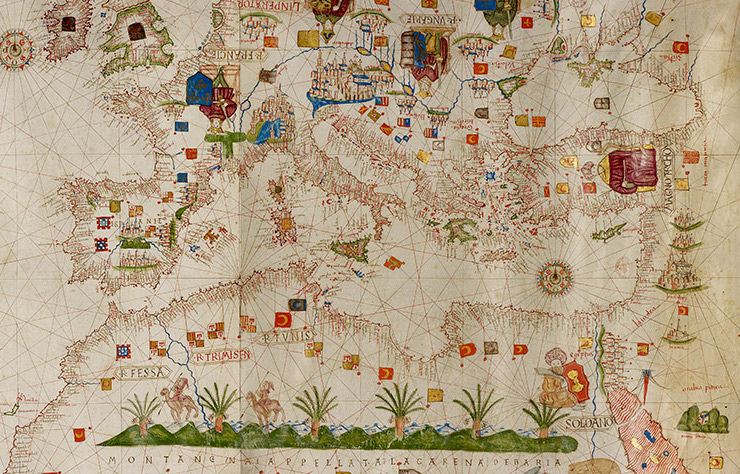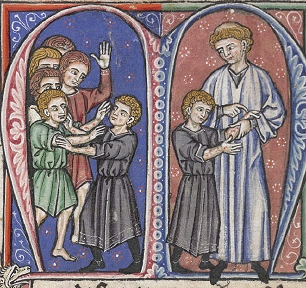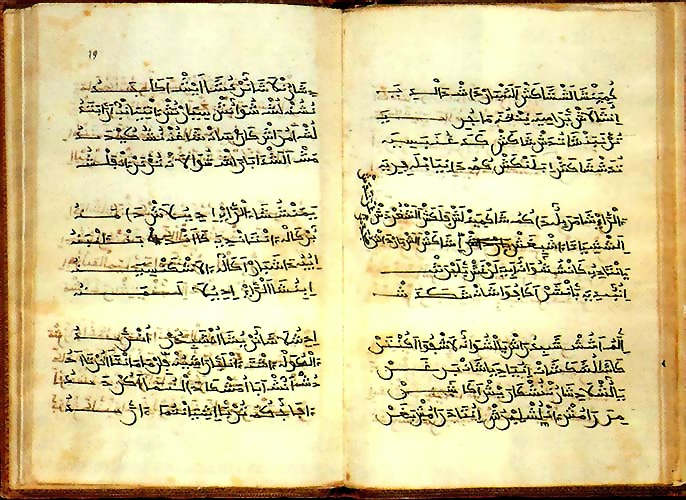Don't forget to check out Part 1 first!
Fifteenth-century German pastoral theology switched easily between classifying vices according to the Seven Deadly Sins and the Ten Commandments. Drunkenness was subsumed under gluttony in the first scheme, and often the First Commandment in the second (“those who turn their stomachs in God,” as Dietrich Coelde put it). [1] Fifteenth-century German pastoral theology also trended towards the remarkably uniform. But inebriety, its severity, and its solutions offered what Ian Siggins categorizes as a rare case for preachers to insert their own opinions based on what appears to be experience. (Observational experience, mind you!)
In his Praeceptum divine legis, which formed the basis for his vernacular preaching as well, Dominican reformer Johannes Nider actually classified drunkenness under the Sixth Commandment. [2] The appeal to him was the general emphasis of pastoral interpretation of the commandment as involving moderation or temperance. Nider’s concern, in other words, was to find ways to moderate drinking behavior.
Johann Herolt, for his part, even took inebriety as a chance to disagree with Thomas Aquinas. The thirteenth-century friar had enshrined into doctrine the idea of degrees of sinfulness in getting drunk. It is not a sin if the drinker does not realize the drink would get them drunk. It is a venial sin if the drinker knows a drink will get them drunk, but does not intend to be so. But it is indeed a mortal sin to drink in order to get drunk.
The fifteenth-century preacher stipulates this general outline. But he reaches into real-world experience to push a bit further: “I believe that inebriation is less of a sin in those who have weak heads and get drunk very quickly on a small amount of wine.” [3] The flip side of this assertion is that someone who knows they cannot “hold their liquor” and gets drunk anyway is probably committing an even worse sin.
The friars show sensitivity and specificity when considering alcohol use and abuse. It is no wonder, then, that devout Christians like Katharina Tucher turned to religion for solutions to drinking too much wine as well.
When preaching about excess wine consumption in German, as preserved in Die vierundzwanzig goldenen Harfen, Nider appropriated the standard solutions for gluttony that he had drawn from tradition for his Latin Praeceptum. He emphasized alternative ways to spend time. Listen to the Word of God. Stay busy with work. Meditate on the Passion, especially Christ on the cross being given bitter gall.
Nider emphasized alternative thought patterns, too. Contemplate that the body, and thus good sensations, is only temporary. Remember that there are poor people who do not have enough to eat or drink in the first place. And, excellently, keep in mind that being drunk means the wine will not taste as good. [4]
Medieval Germany had about thirteen times as much land devoted to viticulture as it does today but produced almost no wine for export. [5] So “not taste as good” might have been a bit subjective.
Tucher, who would not have been familiar with Nider’s preaching when she recorded her Offenbarungen in 1417-1421, nevertheless attempts to apply a solution to her drinking problem similar to one he suggests. Her visionary Christ exhorts her, “Observe how your God and Lord has drunk something bitter and vinegary and has trampled the winepress through your will. And if you break away from drinking, then I will be your helper.” [6] Tucher reiterates to herself the lesson to meditate on the Passion, and hopes that it will prove a long-term solution.
Tucher’s account of her struggles with wine present a case of someone—a lay person, no less—understanding excess alcohol consumption as a religious problem and seeking a religious solution. Oswald’s poem represents a counterpoint, although filtered by the search for satire. The interesting thing is that the clerical perspectives are also more complex than a straightforward assignment of inebriety as a branch of gluttony.
Herolt’s observation that different people got drunk at different rates is a rudimentary approximation of the idea of biological alcohol tolerance, which he does not relate to any kind of spiritual quality or weakness. Nider’s solutions are secular as often as they are religious—not the traditional opposition of vices with moral virtues.
Just as intriguingly, options like diving into work or listening to someone reading the Bible have two key traits in common. First, they take time. Second, they require, or at least suggest, being in the presence of someone who is not drinking at the time. The standard solutions that Nider draws on, in other words, seem to reflect an awareness of the desire to get drunk as a problem that sticks around for a duration of time—an awareness of an ongoing drinking problem, not just a problem with drinking on one occasion.
It’s important not to say “recognition of alcoholism,” because that word has a meaning specifically rooted in modern culture, science, and assumptions. Nevertheless, medieval attempts to address excessive wine consumption through the prism of the sin of gluttony show a definite awareness of a non-religious problem at work as well.
Cait Stevenson, PhD Candidate
University of Notre Dame
~~
[1] Dietrich Coelde (here Koelde), “A Fruitful Mirror, or, A Small Handbook for Christians,” trans. Robert B. Dewell, in Denis Janz, ed., Three Reformation Catechisms: Catholic, Anabaptist, Lutheran (New York: The Edwin Mellen Press, 1982), 52.
[2] Johannes Nider, Praeceptum divinae legis (Strasbourg: Georg Husner, 1483), section 6.6.
[3] Trans. in Ian Siggins, A Harvest of Medieval Preaching: The Sermon Books of Johann Herolt, O.P. (Discipulus) (Bloomington, Ind.: Xlibris, 2009).
[4] Nider, Praeceptum divinae legis, 6.6; Stefan Abel, ed., Johannes Nider: “Die vierundzwanzig goldenen Harfen: Edition und Kommentar (Tübingen: Mohr Siebeck, 2011), 227.
[5] Tom Scott, “Medieval Viticulture in the German-Speaking Lands,” German History 20, no. 1 (2002): 98.
[6] Katharina Tucher, Die Offenbarungen von Katharina Tucher, ed. Ulla Williams and Williams Werner-Krapp (Tübingen: Max Niemeyer Verlag, 1998), 65. Translation mine.




